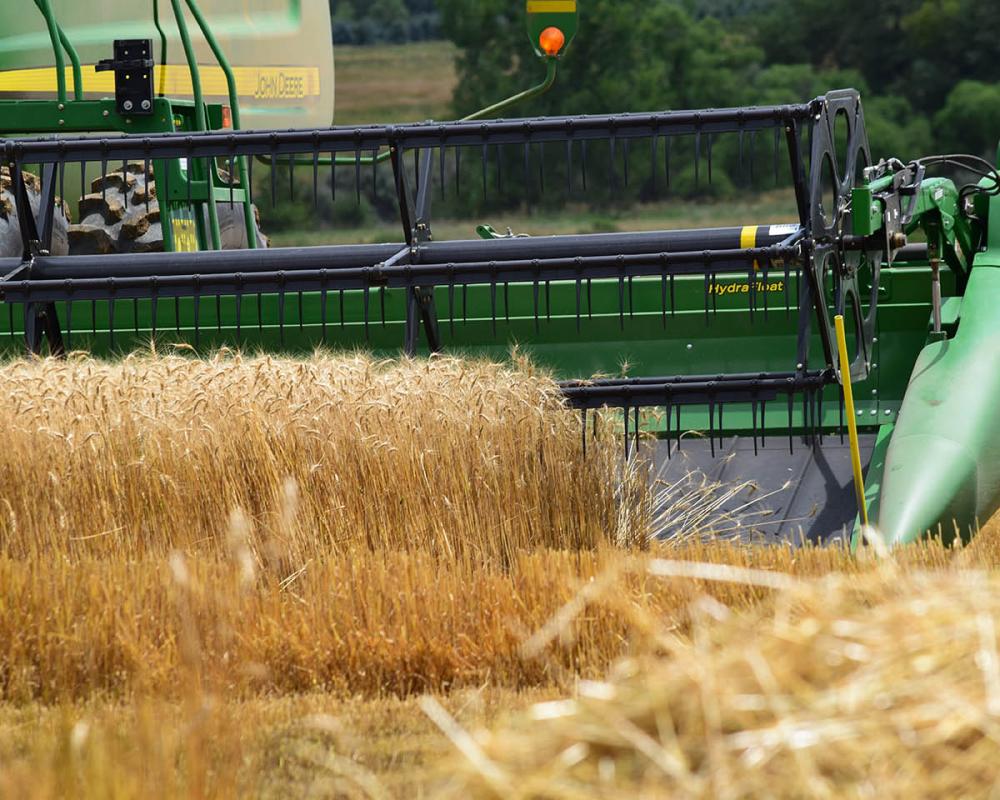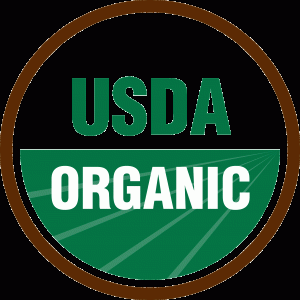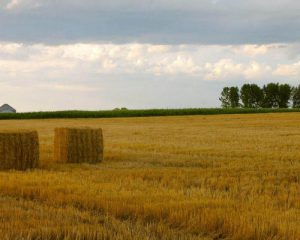What USDA certified organic farms and ranch land is available for sale in Colorado? There are a few properties but not many. According to 2015 data, less than one percent of Colorado’s farms and ranches are certified organic. Yet, the organic food niche has been booming. The fastest way to get into organic production is to purchase land that is already certified. Other options include leasing USDA certified organic or transitioning land into land that can be certified organic.
Why USDA Certified Organic?

There is a growing market for organic food. Since at least 2005, the people in Boulder, Fort Collins, Denver and Colorado Springs areas have represented a great market for organic food producers. As time has gone by, more and more consumers across the United States are demanding to know more about how their food is produced. They want it to fit their definition of healthy. More consumers are also paying attention to how the animals are being raised. As result, consumers are embracing the marketing associated with the USDA certified organic label.
Look at these sales numbers reported by the USDA and the Organic Trade Organization:
US 2012 organic sales – $28.4 Billion
US 2015 organic sales- $43.3 Billion
Of the $43.3 Billion dollars, $39.7 billion of it was for food. In 2015, certified organic sales only accounted for 5% of the food sold in the United States. These are 2015 numbers. In January of 2017, the local Walmart in Falcon, Colorado that I occasionally shop at started carrying so much organic stuff that I almost wondered if I was in a Whole Foods Store instead.
According to the USDA, studies suggest that “Consumers prefer organically produced food because of their concerns regarding health, the environment, and animal welfare, and they show a willingness to pay the price premiums established in the marketplace.” The USDA goes on to say, “Organic products have shifted from being a lifestyle choice for a small share of consumers to being consumed at least occasionally by a majority of Americans.”
 What exactly is organic supposed to mean? According to the USDA, “ Organic food is produced by farmers who emphasize the use of renewable resources and the conservation of soil and water to enhance environmental quality for future generations. Organic meat, poultry, eggs, and dairy products come from animals that are given no antibiotics or growth hormones. Organic food is produced without using most conventional pesticides; fertilizers made with synthetic ingredients or sewage sludge; bioengineering; or ionizing radiation. Before a product can be labeled ‘organic,’ a Government-approved certifier inspects the farm where the food is grown to make sure the farmer is following all the rules necessary to meet USDA organic standards. Companies that handle or process organic food before it gets to your local supermarket or restaurant must be certified, too.” This comes from Consumer Brochure, USDA National Organic Program. 2007.
What exactly is organic supposed to mean? According to the USDA, “ Organic food is produced by farmers who emphasize the use of renewable resources and the conservation of soil and water to enhance environmental quality for future generations. Organic meat, poultry, eggs, and dairy products come from animals that are given no antibiotics or growth hormones. Organic food is produced without using most conventional pesticides; fertilizers made with synthetic ingredients or sewage sludge; bioengineering; or ionizing radiation. Before a product can be labeled ‘organic,’ a Government-approved certifier inspects the farm where the food is grown to make sure the farmer is following all the rules necessary to meet USDA organic standards. Companies that handle or process organic food before it gets to your local supermarket or restaurant must be certified, too.” This comes from Consumer Brochure, USDA National Organic Program. 2007.
If 2015 certified organic sales accounted for 5% of the food sold in the United States, there is plenty of room for growth. The Organic Trade Association surveys have found that much of the demand for organic food is driven by the Millennials (people born between late 1980s to the 2004 or so). The Organic Trade Association also found that the biggest group of organic food purchasers are parents in the 18-34 year old range.
Next, consider these figures from the Colorado’s 2015 Agriculture Statistics:
• Colorado had 34,200 farms and ranches.
• 18,500 Colorado farms and ranches reported sales between $1,000 -$9,999.
• 15,700 ranches in Colorado generated S10,000 or more in revenue.
• 136 farms and ranches in Colorado were certified organic.
• 135 of those certified farms sold $155,206,000 of certified organic products. That would be an average of $1,149,674 per certified organic farm. (I don’t have the data gathered at this point, but I strongly suspect that there is good chance that the normal 80/20 rules applies here. 80% of the organic revenues were most likely produced by the top 20% of the organic farms.).
Less than one percent of Colorado’s farms are certified organic. In my opinion, that sounds like opportunity.
Finding USDA certified farm land and certified ranch land for that is for sale takes time because it is more rare.
At the moment, I’m aware of one large, operating, certified organic farm that is for sale in Fort Collins that is listed by Hayden Outdoors.
The farm has 1,203 acres with 1,132 tillable acres currently under production of barley, corn grain, corn silage, pinto beans and winter wheat. Please contact me for more information on this working farm.

There is also a place in Calhan, CO, with 280 acres of certified organic ranch land that is available for in sale. Calhan is about 45 minutes away from Colorado Springs. It is my understanding that additional parcels are available.
If you might be interested in either of these places or other USDA certified organic land in Colorado, please send me an email or call.
Sincerely,
Sondra Meyer
Real Estate Broker
Star View Real Estate
sondra@starviewre.com
As a side note:
If you are an owner with ranch land or pastures, that is NOT planning on selling anytime soon, maybe you should consider USDA organic certification as a way of increasing the value of your property and/or hay. Dairy cattle that produce certified organic milk need certified organic hay. Same holds true for “organic” beef cattle that are fed hay. It has to be certified organic hay. Some people simply want to feed their horses or other animals organically raised hay. There is a market for certified organic hay.
For more information on organic certification, check out the USDA’s Organic Certification site https://www.ams.usda.gov/services/organic-certification. The USDA views the certification as a marketing tool.
Sources of Data
Ag Census 2012/Full_Report/County_Level/Colorado
NASS usda.gov/Statistics_by_State/Colorado/Publications/Annual_Statistical_Bulletin/Bulletin2016.pdf.
USDA Organic Production-09-15-2016.pdf
Such a wealth of information. I think there is much confusion on the consumer part on what organic exactly means. I did not even know there was a certification and if it is so rare, many of the farmers probably have not cared about it if it was not mandatory. But having it sets you apart from those without it. I always wonder if it is truly healthier or not, and would like to see studies on that. There is a cost difference to take into account. I have been buying non organic my whole life but I do not follow trends others care about.
Thanks for your comment. I agree there is a great deal of confusion as to what the term “organic” means.
Many farmers do not want to pursue organic certification because of the challenges associated with not being able to use commonly used pesticides, fertizliers, etc. that are used in conventional farming to increase yields. After all, farming and ranching is challenging enough even when using “conventional methods.” The three year transition period can also cut into any profit margin that might be available.
Other people that farm or ranch organically opt not to pursue certification because of the headaches and costs of dealing with goverment regulations. There are also disagreements about what should be allowed and what should not be allowed to be used in organic production. Some people within this group feels that certain things that permitted in organic production should not be allowed.
Great points. Running a farm is a business and the owner has to look at the cost benefit of many choices. I see what you are saying with regulations getting in the way of profitability or even the time to handle that when there are many things to do on a farm. I suppose as we find smoothly running organic farm operations a case study could highlight them and we could discover why they are so good at what they do to enlighten others exploring going down this path.
How much should I expect to pay per acre for organic farm land in Weld county Colorado! Thank you